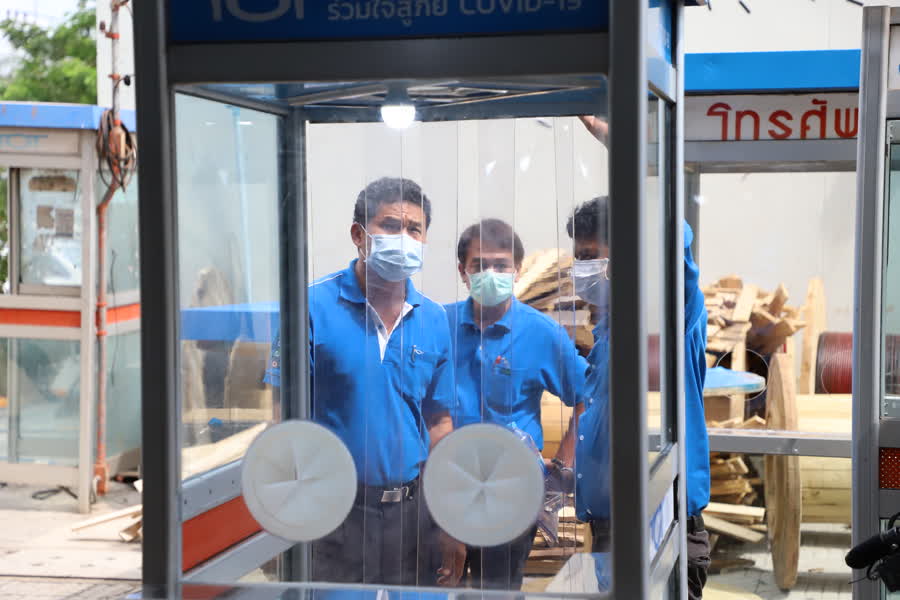
Cities and provinces in Thailand are improving their facilities and services for COVID-19 screening and tests. Bangkok City Hall has launched a website where users can fill in a risk assessment form, and started a mobile testing service for persons at high-risk. Elsewhere, Udon Thani has opened a field hospital specifically for respiratory disease patients, the first of its kind in the northeastern region.
The Governor of Udon Thani has visited the respiratory diseases field hospital, the first of its kind in the province and the northeastern region, where he expressed support for medical staff treating patients.
The field hospital uses shipping containers as history taking rooms, examination rooms, and a pharmacy. Equipped with a modern laboratory, the hospital can run tests for COVID-19, each taking three hours to return a result.
The opening of this field hospital helps increase the testing capacity to assess persons at high risk, such as people who have been to places with confirmed transmission, medical workers, and the general public in close contact with COVID-19 patients. The hospital also serves other patients, with consultation and treatment offered as normal.
In the capital, the Bangkok Metropolitan Administration (BMA) Spokesman, Pol Capt Pongsakorn Kwanmuang announced that City Hall has developed the BKK Covid19 online screening service, available on www.bkkcovid19.bangkok.go.th website.
The general public can fill in an online questionnaire designed by doctors to assess their risk of COVID-19 infection. Those considered at risk after completing the questionnaire will have the option of calling in a mobile testing van to check for any infection. Those who are at high-risk after completing the questionnaire can request immediate help from the channels provided.
In Samut Sakhon, the provincial TOT office has adapted unused telephone booths into a protective chamber protecting medical professionals while collecting test specimens from patients.
The front glass panes of the telephone booth were removed and replaced with a clear acrylic sheet. Ventilators and illuminations were installed, as well as a cavity allowing a medical worker stationed inside the booth to reach out to collect specimens by hand from a patient outside.
Five of these protective booths have been made, and will be delivered to Samut Sakhon Hospital, Krathumbaen Hospital, and Ban Phaeo Hospital. (NNT)




